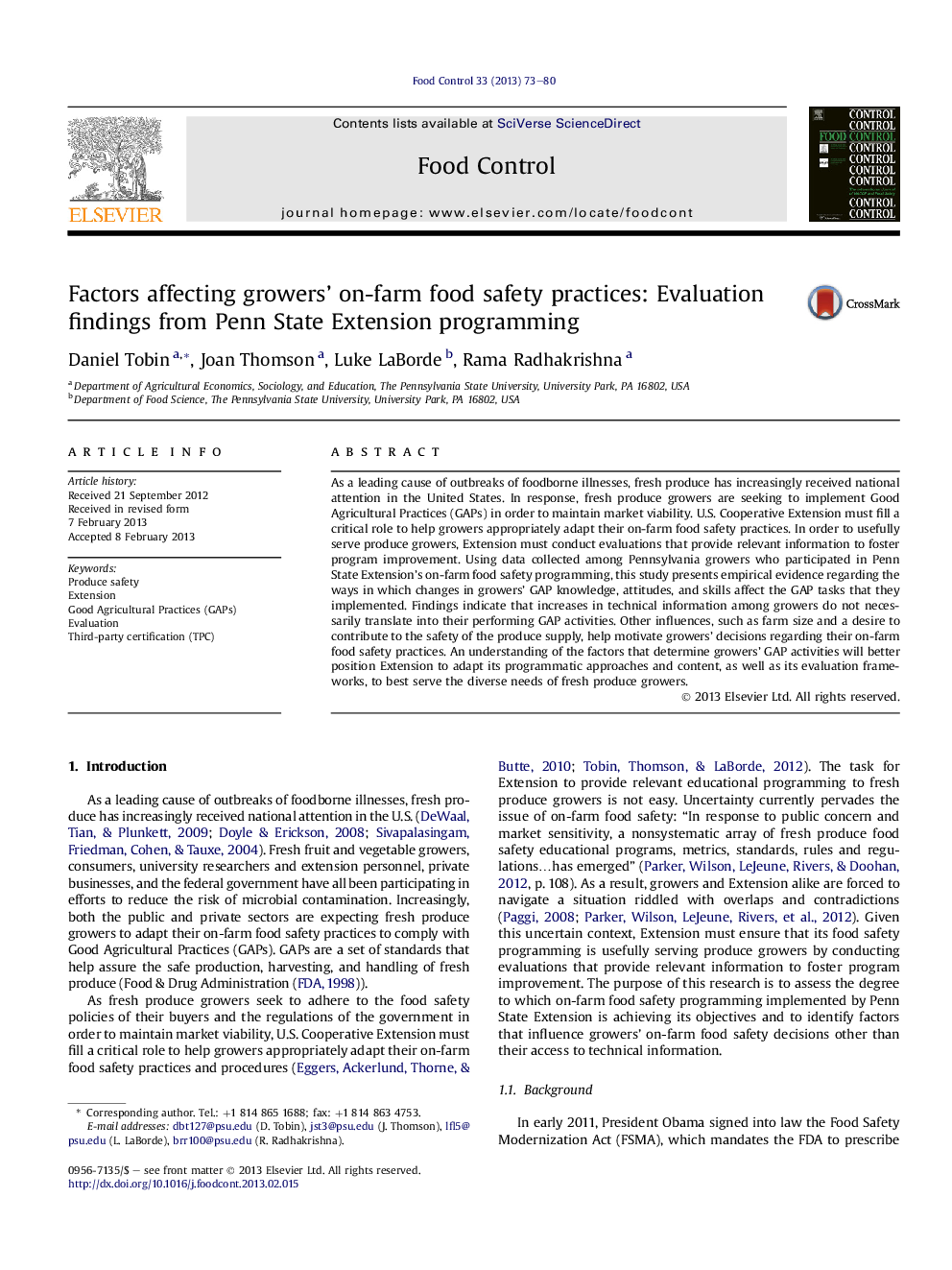| Article ID | Journal | Published Year | Pages | File Type |
|---|---|---|---|---|
| 6392472 | Food Control | 2013 | 8 Pages |
As a leading cause of outbreaks of foodborne illnesses, fresh produce has increasingly received national attention in the United States. In response, fresh produce growers are seeking to implement Good Agricultural Practices (GAPs) in order to maintain market viability. U.S. Cooperative Extension must fill a critical role to help growers appropriately adapt their on-farm food safety practices. In order to usefully serve produce growers, Extension must conduct evaluations that provide relevant information to foster program improvement. Using data collected among Pennsylvania growers who participated in Penn State Extension's on-farm food safety programming, this study presents empirical evidence regarding the ways in which changes in growers' GAP knowledge, attitudes, and skills affect the GAP tasks that they implemented. Findings indicate that increases in technical information among growers do not necessarily translate into their performing GAP activities. Other influences, such as farm size and a desire to contribute to the safety of the produce supply, help motivate growers' decisions regarding their on-farm food safety practices. An understanding of the factors that determine growers' GAP activities will better position Extension to adapt its programmatic approaches and content, as well as its evaluation frameworks, to best serve the diverse needs of fresh produce growers.
⺠Growers' knowledge and skills have minor influence on food safety activities. ⺠Growers implement on-farm food safety for reasons beyond deficit in knowledge. ⺠More complex evaluation models needed to account for other motivating factors.
